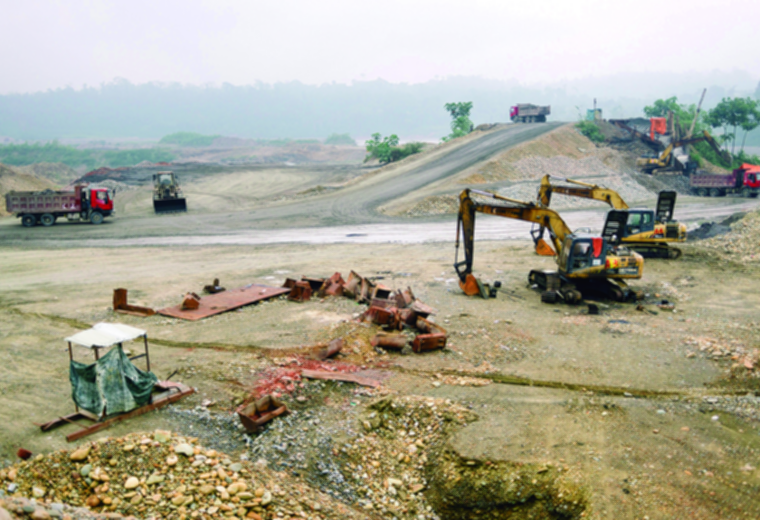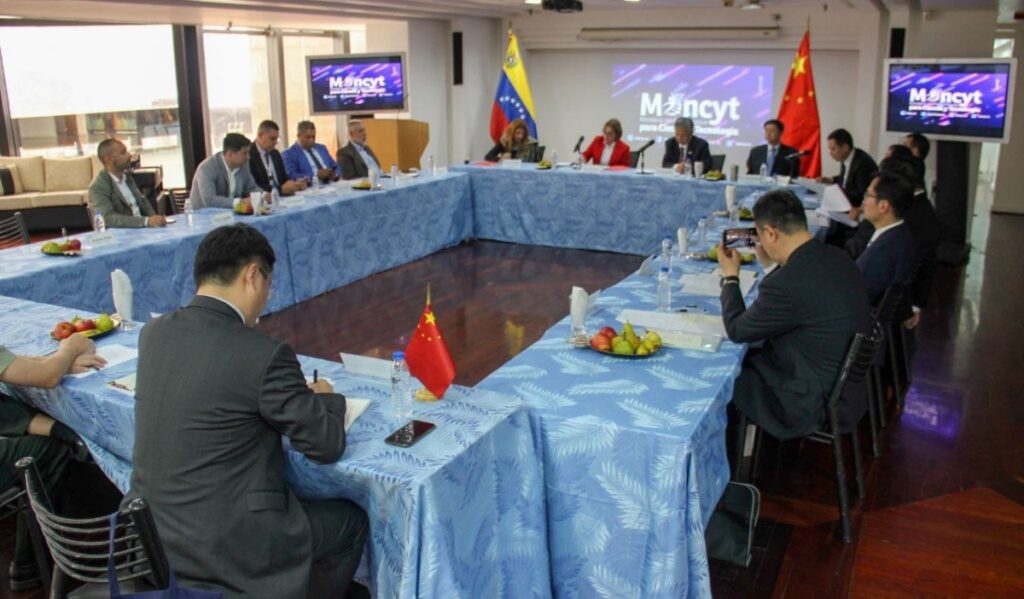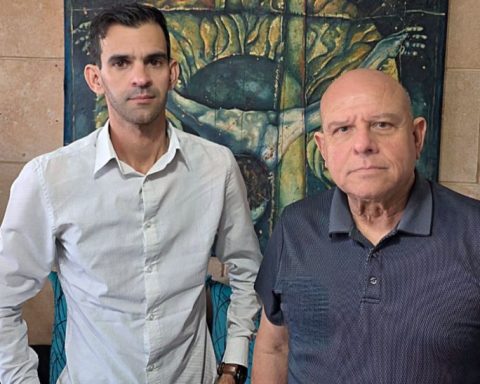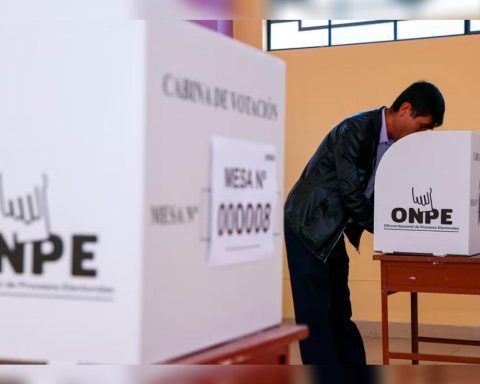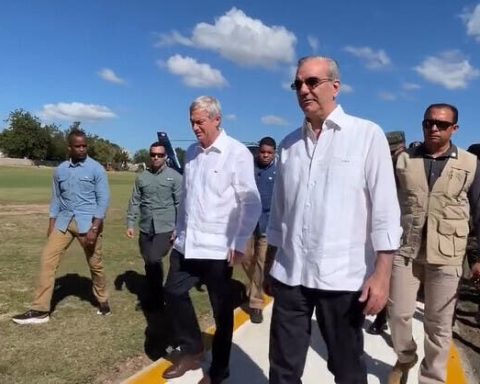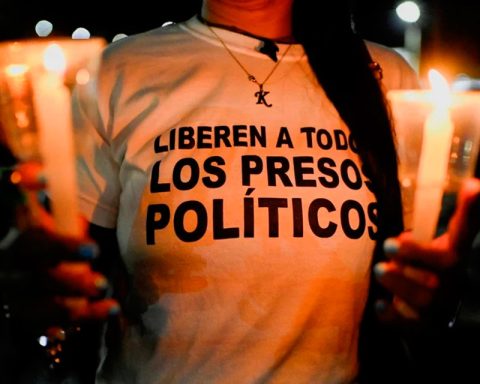April 18, 2023, 12:40 PM
April 18, 2023, 12:40 PM
The value of the royalties that Bolivia receives for the exploitation of its minerals grows, but not in the proportion in which production and exports of the sector increase, which shows an institutional weakness to enforce the regulations current. The natural resource where the State loses the most money is gold, for which the minimum 2.5% that the law dictates is not paid.
Data from the Statistical Yearbook and Mining Situation 2022 show that the value of minerals produced in Bolivia grew from $us 4,106 million in 2018 to 6,761 million last yearwhich represents an increase of 64.6%.
On the other hand, royalties received by governments (85%) and producing municipalities (15%) as compensation for the exploitation of mineral, metallic and non-metallic resources increased by 33%, from $us 178.8 million to 238.1 million.
A more detailed analysis reveals, however, that “the State is receiving less and less royalties”, despite the fact that the value of sales to other countries has been increasing, said Héctor Córdova, a specialist in mining issues at the Jubilee Foundation.
“In 2018, the royalties received represented 4.35% of the exported value, in 2019 3.94%, in 2020 4%, in 2021 3.67% and in 2022 3.52%.. This decrease is exclusively due to the fact that we are exporting more and more gold since cooperative members pay even less than the minimum 2.5%” established by law, he explained.
The past administration, the value of gold exports rose by 17%, from $us 2,534 million to 3,007 million; while the royalties they left increased by 5.5%, from $us 59.8 million to 63.2 million.
The compensation obtained by the regions for the exploitation of gold, which is 99.5% in the hands of the cooperatives, it barely reached 2.1% of the exported value.
“There are precedents” of an imbalance between royalties paid and mining production that has been repeated in previous years, said Alfredo Zaconeta, a researcher on mining issues at the Center for Labor and Agrarian Development (Cedla). “The most striking is that of gold. In 2021, that production left a royalty of 2.3% and one of just 2.05% in 2022. The authorities in charge of overseeing national mining have so far been unable to explain this anomaly, he noted.
In this regard, Eloy Sirpa, president of the Regional Federation of Gold Mining Cooperatives (Ferreco), one of the largest organizations of gold producers in Bolivia, He said that they do comply with 2.5%. “We do not quite agree with that version. We are making our advisors analyze” this data “to give a concrete report” with that evaluation, said the leader.
Consulted on the subject, the Minister of Mining and Metallurgy, Ramiro Villavicencio, informed EL DEBER that the difference is explained by internal demand.
“If $3,000 million have been exported, 2.5% becomes – if I am not mistaken – about $66 million, but less was registered, about $us 60 million. That is because that gold has been sold inside the country, ”he asserted.
“If the gold is sold within the country to transform it into jewelry, the company or cooperative can pay 1.5% (in royalties). But the statistics show that practically everything that has been produced has been exported. There is no reason for them to say that they have sold to the domestic market and that is why they have paid a 1.5% royalty,” Córdova retorted.
The Statistical Yearbook indicates that in 2022 gold was produced for a value of $us 3,073 million and that a value of $us 3,007 million (97.88%) was exported.
“He State has lost control of gold mining and that makes cooperative members pay even less than 2.5%, which is the minimum they should pay,” said Córdova. “The Government cannot even enforce the current law and the State loses a lot of money from the exploitation of this metal. The cooperative members are too strong and do what they see fit, ”she said.
The gold exploitation should as a rule leave up to 7% royalties, but the governments of the Movimiento al Socialismo (MAS) allowed cooperative members to pay as if all their operations were carried out in marginal and small-scale deposits, a “gift” 2.5%. “Being the metal that should pay the most, it is the one that pays the least, which is an affront to the entire Bolivian people (…). If they complied with the current regulations, the State would be receiving $1.5 billion per year in taxes and royalties”, indicated the Jubilee researcher.
“There is a complete lack of control of mining, which now receives greater attention due to the desperate government proposal of the Gold Law, to market it without consulting the Legislative Assembly and try to stabilize international reserves,” said Senator Cecilia Requena, from Comunidad Ciudadana.
This lack of control “is not only manifested in the serious violations of human rights in the territory due to contamination and irreversible devastation (from gold mining), but also because of a worrying chaos at the institutional level,” he said.
This lack of clarity is also reflected in the preliminary data from the Institute of Statistics (INE), which indicate that the Bolivian metallic gold exports totaled $us 69.3 tons, while the yearbook of the Ministry of Mining indicates that the production volume is 53.4 tons.
“The difference is too big to ignore,” Córdova said.
A report from the Ministry of the Presidency, which is part of the explanatory statement of the National Production Gold Bill for Strengthening Net International Reserves, reveals that “There is an internment of gold from Peru illegally that is intended for export through formal Bolivian channels”.
“Without a doubt, the gold issue should be worked on in such a way that with the International Reserves Law the State can trace it, to have control from the exploitation, production and above all the commercialization”, said the Minister of Mining.
“If the government had the guts and the strength, they could solve Bolivia’s economic problem just by attacking the gold case. You shouldn’t be borrowing from anyone. It would suffice to demand compliance with the norm, but they do not have the will to do so and they have to sacrifice all of us and lead us to a very serious situation, of lack of foreign currency,” said Córdova.
